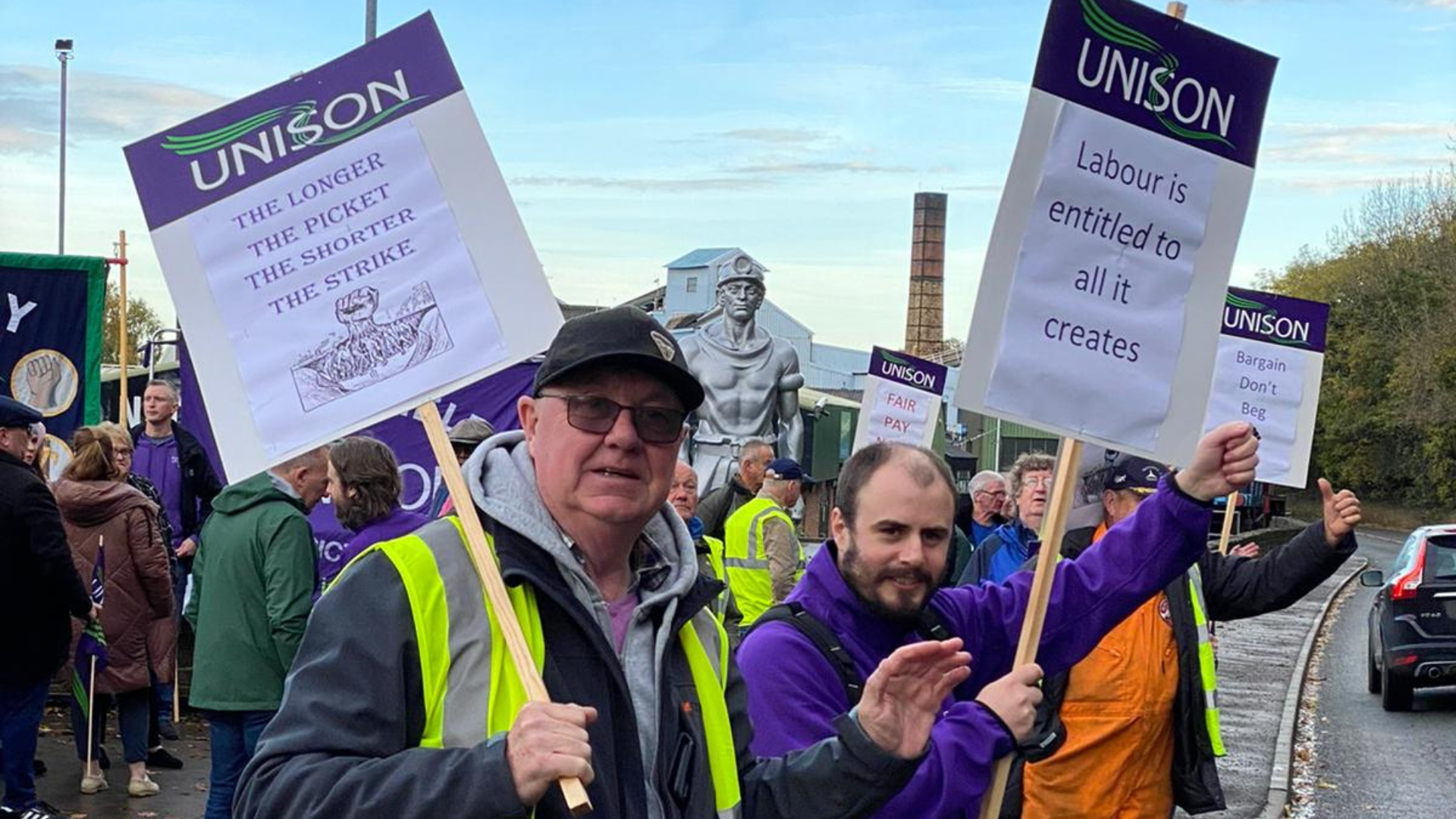Ex-miners who took part in the 1984 strike and now work at the National Coal Mining Museum are back on the picket line to demand higher wages.
The Yorkshire museum has been forced to close as around 45 staff have walked out over a below-inflation pay rise.
Many of those on strike remember standing on the picket lines during the miners’ strike against Margaret Thatcher’s government, and now work as tour guides in the museum, sharing their experiences with visitors. The museum says it has offered the maximum pay rise allowed by the government.
“I think it is an embarrassment to have a museum that celebrates the disputes of miners in the industrial struggles to have their workforce on strike because of poverty wages,” Unison Wakefield organiser Sam Greenwood told The Big Issue.
“The museum obviously celebrates mining heritage, and within the museum there is a big display about the miners’ strike in 1984 to 1985, and it proudly talks about that, and I think they’ve forgotten what they are as an organisation.”
The museum workers are on their second of five days of strikes, seeking a flat rate pay rise of £2,000 each. They say they have rejected the museum’s offer of a percentage based raise because it will benefit those already earning the highest salaries more than those earning the least.





